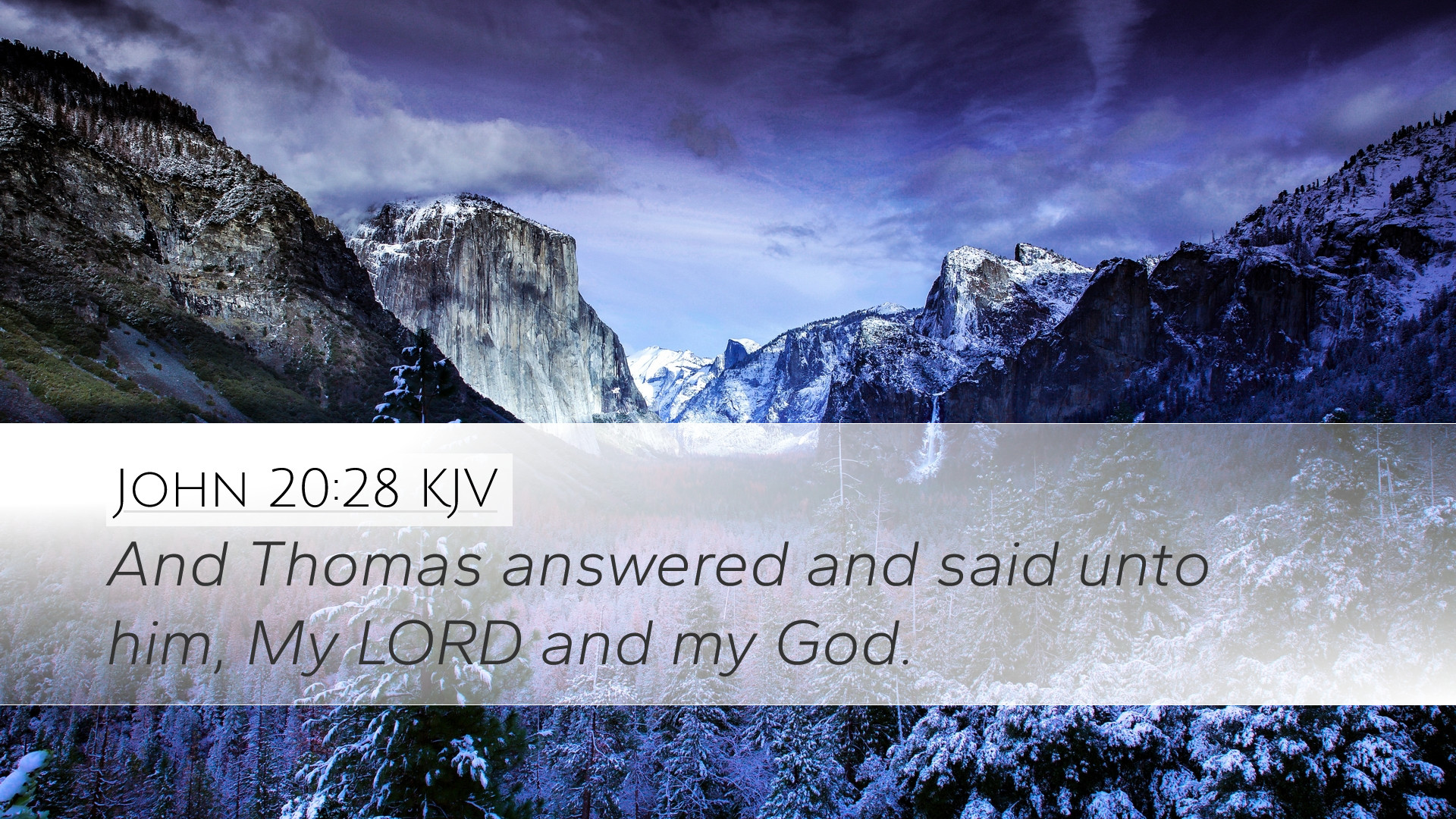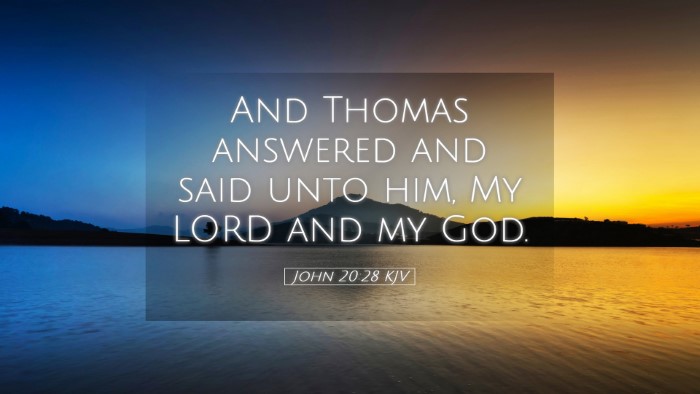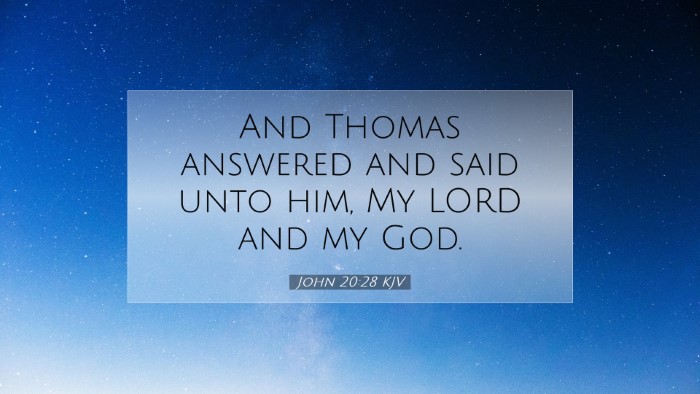Commentary on John 20:28
John 20:28 presents a profound declaration of faith made by Thomas, often referred to as "Doubting Thomas." Upon witnessing the resurrected Christ and feeling the wounds of His crucifixion, Thomas exclaims, "My Lord and my God!" This verse encapsulates the dual acknowledgement of Christ's divine authority and His personal relationship with the believer.
Verse Text
"And Thomas answered and said unto Him, My Lord and my God." (John 20:28)
Historical Context
After the resurrection of Jesus, He appeared to the disciples multiple times. However, Thomas was absent during one of these appearances, leading him to doubt the resurrection. His skepticism reflects a common human experience—doubt in the presence of overwhelming evidence—yet his eventual declaration highlights a significant turning point in faith.
Theological Insights
- Affirmation of Christ's Divinity: Thomas's proclamation recognizes the full divinity of Christ, serving as a pivotal acknowledgment in the New Testament. Matthew Henry notes that this statement confirms the belief in the dual nature of Christ—fully God and fully man.
- Personal Relationship with Christ: The use of the personal possessive "My" signifies an intimate and personal relationship with Jesus. Albert Barnes emphasizes that such a recognition not only confirms Thomas's faith but also serves as a model for believers today to possess a personal relationship with Christ.
- Response to Doubt: Thomas's journey from skepticism to faith is significant. Adam Clarke points out that it reflects the struggle many face when confronted with the miraculous. Christ's gentle rebuke and gracious revelation invite believers to confront their doubts.
Application for Believers
This verse challenges believers to consider their own faith journey. Many may find themselves in moments of doubt. However, just as Thomas received tangible evidence and engaged with Christ directly, modern believers are encouraged to seek a deeper understanding and relationship with Jesus.
Lessons for Pastors and Theologians
- The Role of Doubt in Faith Development: Pastors can encourage congregants that doubt need not equate to a lack of faith, but rather can be a catalyst for deeper belief and dependence on Christ. Clarke’s analysis provides insight into how faith sometimes grows through the struggle with doubt.
- Christ's Invitation to Believe: The gentle invitation by Jesus to Thomas serves as a reminder that Christ actively seeks out those who waver in faith. This can inspire a pastoral approach rooted in compassion, providing spaces for questioning and exploration of faith.
- Worship and Acknowledgment of Christ: The liturgical importance of affirming Christ’s lordship is reflected in Thomas’s declaration, prompting worship leaders and theologians alike to incorporate such theologically rich acknowledgments into worship practices.
Conclusion
John 20:28 is more than a simple statement; it is a theological declaration that encapsulates the essence of Christian belief. It invites believers into a personal relationship with Jesus as Lord and God. The response of Thomas serves as both a challenge and an encouragement for all who encounter the resurrected Christ, urging them to embrace faith that transcends doubt.


